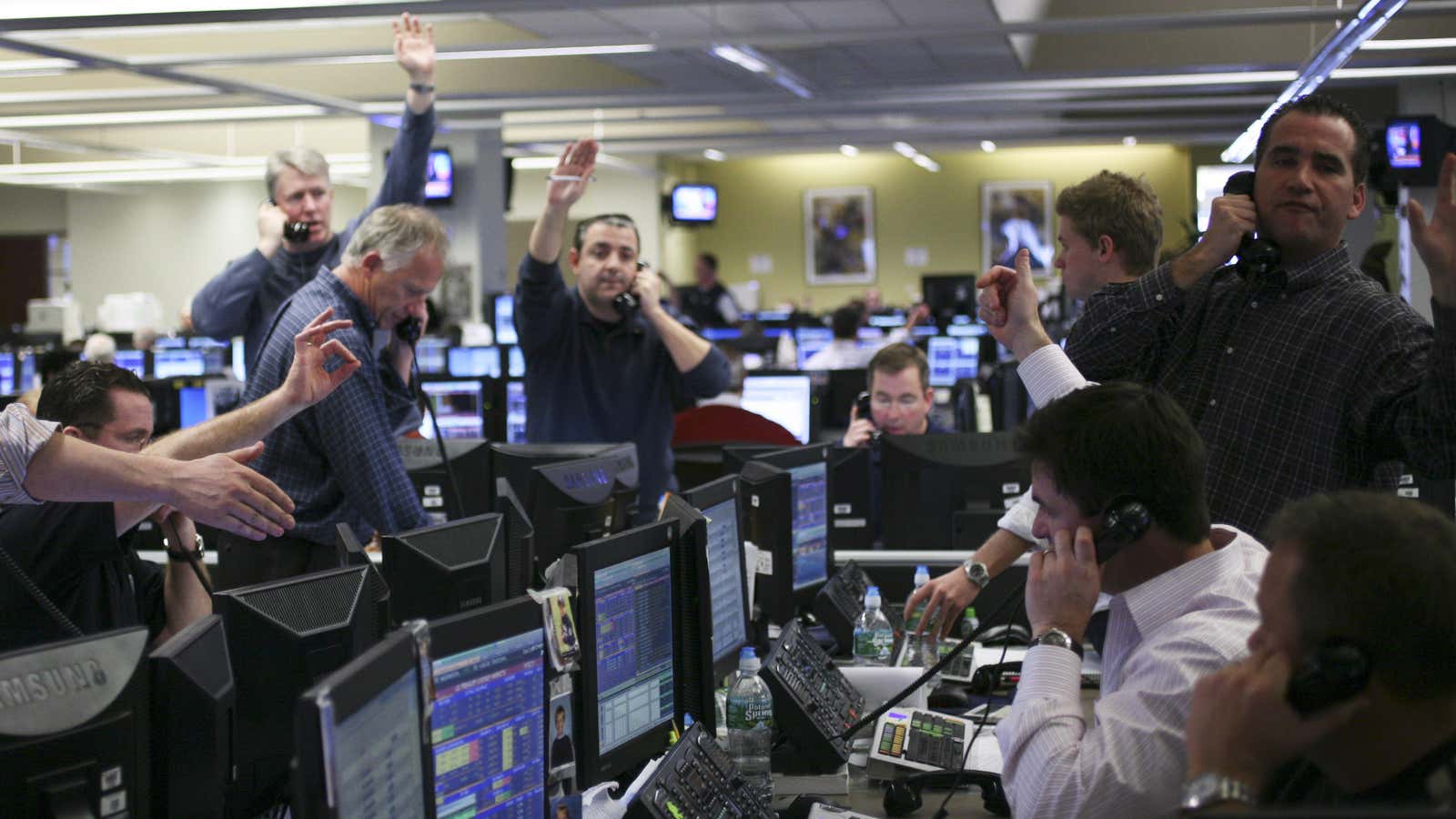Tudor Investment Corporation’s Paul Tudor Jones today found himself in the middle of a firestorm of his own making when the Washington Post published a video of a speech he gave last month. During that speech, the hedge fund billionaire told the audience:
You will never see as many great women investors or traders as men. Period. End of story. And the reason why is not because they’re not capable. They’re very capable. Like, one of my No. 1 rules as an investor is as soon as my manager, if I find out that manager is going through divorce, redeem immediately. Because the emotional distraction that comes from divorce is so overwhelming. The idea that you could think straight for 60 seconds and be able to make a rational decision is impossible, particularly when there are kids involved. You can automatically subtract 10% to 20% from any manager if he is going through divorce…
I can think of two [women] that actually started E.F. Hutton with me. Within four years, by 1980, right when I was getting ready to launch my company they both got married. Then they both had—which in my mind is as big of a killer as divorce is—they both had children. And as soon as that baby’s lips touched that girl’s bosom, forget it. Every single investment idea, every desire to understand what’s going to make this go up or go down is going to be overwhelmed by the most beautiful experience which a man will never share about a mode of connection between that mother and that baby. I just see it happen over and over. I’m talking about trading, not managing…
Essentially, he’s arguing that women are more emotional, and more likely to be “overwhelmed” by the experience of having a child. That, he thinks, stunts their trading performance. (In a statement today, Jones downplayed his references to motherhood and said “any man or woman can do anything to which they set their heart and mind.”)
It’s possible to believe in the uniqueness of the bond between a mother and her children, and absolutely reject Jones’ contention that babies are a “killer” to women traders’ performance for obvious reasons. And—beyond the blatant distastefulness of such stereotyping—research into the physiological reactions of men and women to stress suggests that, if anything, Jones should want more, rather than fewer, women on trading floors.
John Coates, a neuroscientist at the University of Cambridge and a former Wall Street trader, found in a 2012 study that the level of male traders’ cortisol—the so-called “stress hormone”—increased by as much as 500% on days when volatility in the markets rose dramatically. While cortisol can lead to better risk-management in small doses, the Economist explained in a review of Coates’s study that ”chronic stress over weeks or months can produce so much cortisol that the brain focuses excessively on negative memories and perceives threats where they do not exist.”
Such a cortisol overload can obscure judgment, and lead traders to make poor decisions on the job. Women don’t produce as much cortisol when in risky situations and therefore—theoretically at least–aren’t as likely to be as overwhelmed by negative emotions.
Coates vividly described the culture of male traders in his 2012 book The Hour Between Dog and Wolf, which summarized his findings in a metaphor:
This phenomenon can be observed in the animal world, and most vividly among elephants. In the absence of elders, young male elephants go into musth prematurely, a condition in which their testosterone levels surge forty to fifty times above baseline, and then they run amok, killing other animals and trampling villages…when it comes to allocating the capital of society, the financial sector’s allotted goal, we probably do not want volatile behavior. We want balanced judgment and stable asset prices, and we are more likely to get these if we have the whole village present—men and women, young and old.
Coates’s research has been supported by other studies in the last few years suggesting that women investors are less impulsive, amassing winnings steadily rather than all in one go. Isn’t that how we want markets to broadly work?
But let’s return to the idea that women are, for some reason, more distracted after the birth of a child. Men actually have a similar capability to develop an emotional attachment with a child as women do, so long as they spend time with the child. But one thing that’s different for women is that they have to shoulder a greater burden of housework than men do, according to studies. (That’s surprisingly even more true when they earn more money than their male partners.) And the burden generally increases when children come into the picture. If there’s any plausible reason why there’s a difference between mothers and male traders, as Jones believes, it could well be that mothers take the time to focus on their kids and are burdened by housework men are less inclined to tackle.
In a society that demands more work from successful women than it does men, and in an industry that allows such stereotypes to persist, it doesn’t come as a surprise that female traders are few and far between.




